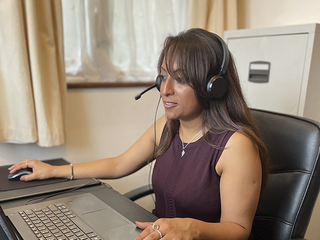What is chronic LGLL?
Around 95% of people with LGLL have a chronic form of LGLL. This means it is a slow growing type of leukaemia.
Types of chronic LGLL
Around 240 people in the UK are diagnosed with LGLL each year, with most of these having chronic LGLL.
- Around 85% of people with LGLL have chronic T-LGLL
- Around 10% have chronic NK-LGLL
Causes of LGLL
LGLL usually affects people who are older. Most people who are diagnosed will be over the age of 60, but it can happen in younger people too.
LGLL, including chronic LGLL, is not caused by anything that you have done. It’s not clear what the exact cause of LGLL is, but there are some things that seem to be linked to an increased risk of developing it:
Up to 40% of LGLL patients have an autoimmune disease - a condition that happens when your immune system mistakes your own cells for foreign cells and begins to attack your healthy cells. In particular, LGLL has been linked with rheumatoid arthritis, an autoimmune condition where the immune system attacks the lining of the joints.
Several people with LGLL either have or have had a condition that affects the B-cell lymphocytes. This includes blood cancers such as a follicular lymphoma, mantle cell lymphoma, or chronic lymphocytic leukaemia.
LGLL has also been associated with breast cancer, prostate cancer, and some forms of skin cancer.

Worried about anything or have questions?
If you need someone to talk to, please don't hesitate to contact our Support Service by phone or email.
